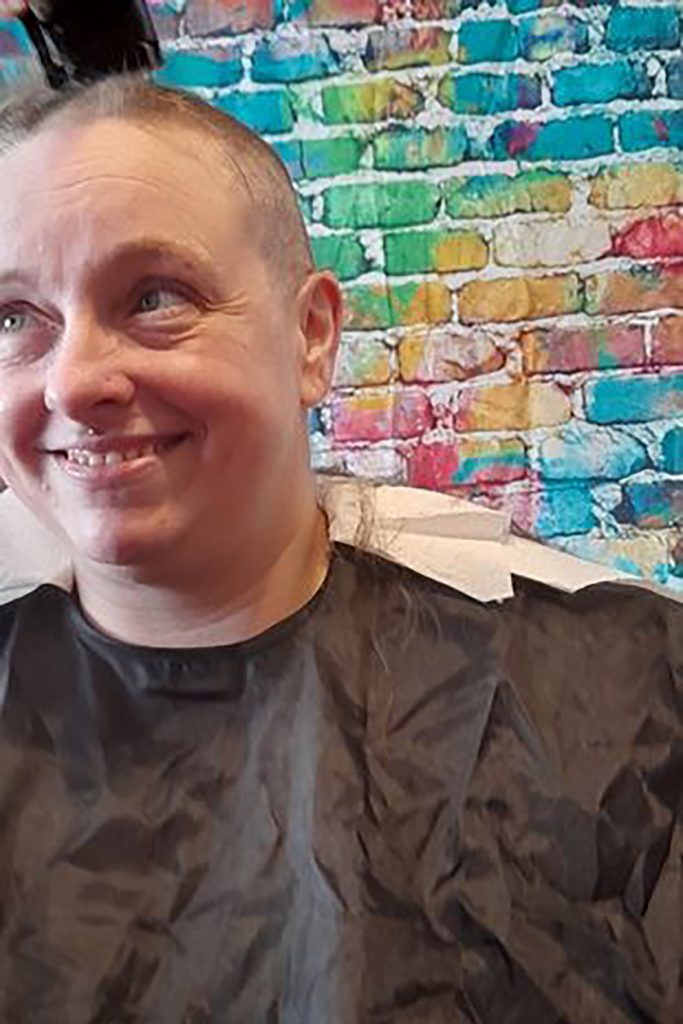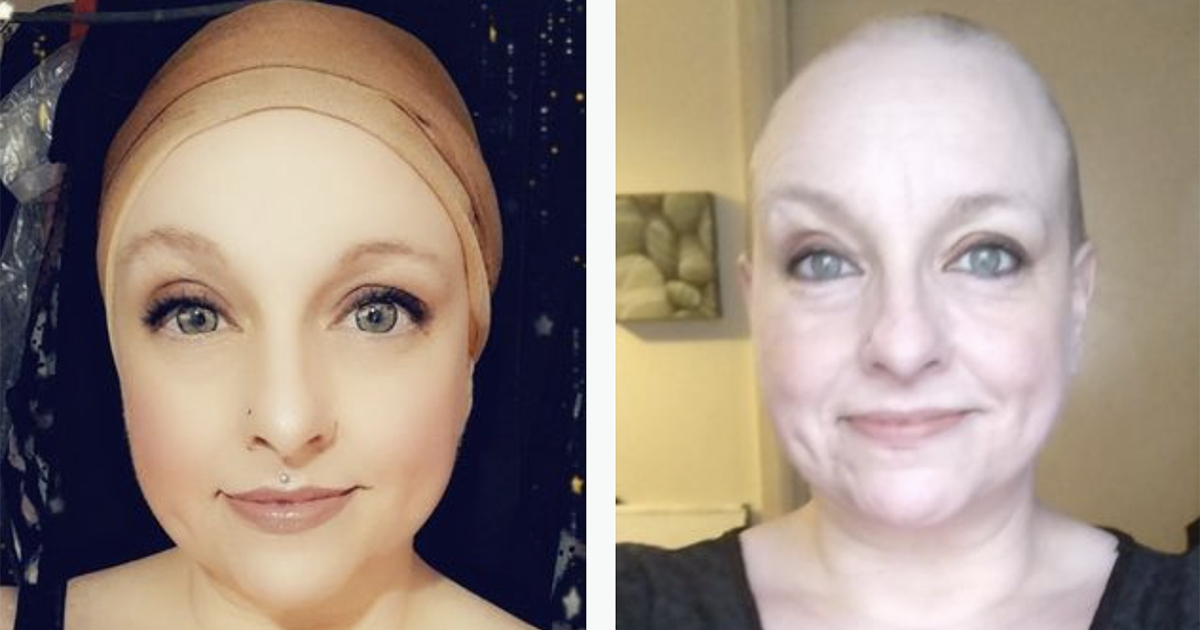Understanding Endometrial Cancer
- A mother of three was shocked to learn recently that her heavy periods were actually miscarriages caused by cysts. Later in life she developed uterine cancer.
- Endometrial cancer is sometimes called "uterine cancer," and it is a type of cancer that starts in the uterus. Treatments for this disease include surgery to remove the uterus, radiation, hormone therapy and chemotherapy.
- While Williams was waiting to have her second cancer surgery, she began chemotherapy treatment. Nurse practitioner Vivian Ruszkiewicz says that hair loss is one of the more "distressing" side effects of chemotherapy.
Now, Fiona Williams, 46, of Scotland is sharing her story in order to encourage others to get checked, and hopefully catch their cancer early enough.
Read MoreFiona's Cancer Diagnosis
Williams' fertility issues began about 20 years ago, in 2002; that was the year she was first examined.She and her new husband learned that what she thought were heavy periods she had experienced her whole live were actually a series of miscarriages caused by polycystic ovaries. But her cancer diagnosis came later.
"We were absolutely devastated but resigned ourselves to the fact we would never be able to have our own baby," Williams says.

But that was in fact not the case. Over the years, she would visit her doctor the last thing on earth she was expecting to be was pregnant and every time, she was pregnant. The babies would have to be delivered via emergency C-section.
After thinking for most of her adult life that she would never be a mother, now at age 46, she has three wonderful children: Rhian, 17; Thomas, 9; and David, 7.
However, her pain persisted after she stopped having children. She was still experiencing heavy and painful periods; she also had a new symptom, back pain. Upon visiting her doctor, she was told she had fibroids are noncancerous growths of the uterus that often appear during childbearing years. Her doctor prescribed her medicine for the pain, but still, it persisted.
Then a fibromyalgia diagnosis came in 2019. Fibromyalgia is a condition that causes pain all over the body, sleep problems, fatigue and often emotional and mental distress. Two years later, during another doctor's visit, she was told the fibroids had returned.
"My blood tests came back clear except I was anemic, so I was referred for an ultrasound and sent a request for an appointment at gynecology," she says. "The ultrasound just showed fibroids again, and I received a letter from the gynecologist to go and have a hysteroscopic polypectomy to remove the fibroids." (A hysteroscopic polypectomy is a surgical procedure to remove uterine polyps as well as check for cancer.)
"The screen is right next to you," she adds, "so I could see a large lump that was very veiny and looked quite fiery."
She had what she thought were fibroids biopsied, however, nine weeks later in June 2021, she was given the heartbreaking news that her "fibroids" were actually endometrial cancer.
What is Endometrial Cancer?
Endometrial cancer is sometimes called "uterine cancer," and it is a type of cancer that starts in the uterus. Treatments for this disease include surgery to remove the uterus, radiation, hormone therapy and chemotherapy. (Williams had a hysterectomy, which is surgery to remove the womb, but some cancer remained inside her body, so she needed a second procedure.)
Understanding the Risks and Symptoms of Uterine Cancer
In 2022, about 65,950 people will be diagnosed with this type of cancer, according to the American Cancer Society.
In a previous interview with SurvivorNet, Dr. Diana English, former gynecologic oncologist at Stanford University and now associate professor at the University of Florida, explains that there are several conditions that may predispose someone to getting uterine cancer.
"These patients might not be thinking about this, their primary care providers may not be speaking to them about this," Dr. English says.
Those conditions are:
- Hypertension
- Diabetes
- Polycystic Ovarian Syndrome (which is marked by the absence of regular periods)
- Obesity
- Hyperandrogenism (elevated male sex hormones)
- Lynch Syndrome
Coping With Hair Loss
While Williams was waiting to have her second cancer surgery, she began chemotherapy treatment.
"After my first chemotherapy session, I noticed my hair was falling out," she says. "So, I decided I wanted to shave it off."
"I wanted to take back control," she adds. "This way cancer and chemo weren't taking my hair, I was."
"I let my kids help shave my head so they could be involved and then it was a fun thing and it wasn't so scary seeing their mum with no hair."
Chemotherapy Side Effects Hair Loss
Vivian Ruszkiewicz, a nurse practitioner with OhioHealth, a not-for-profit system of hospitals and health care providers in Columbus, Ohio, tells SurvivorNet that hair loss is one of the more "distressing" side effects of chemotherapy.
"It's one of the things that people can see from the outside that people may know that you are ill," she says, "and that poses a lot of stress for patients."
There are a large number of chemotherapy treatments that cause hair loss, but not all of them, she says; others cause hair thinning. Ruszkiewicz stresses that if you are concerned about your hair, talk to your doctor or nurse practitioner about what to expect from your chemotherapy treatment.
Contributing: Anne McCarthy
Learn more about SurvivorNet's rigorous medical review process.


